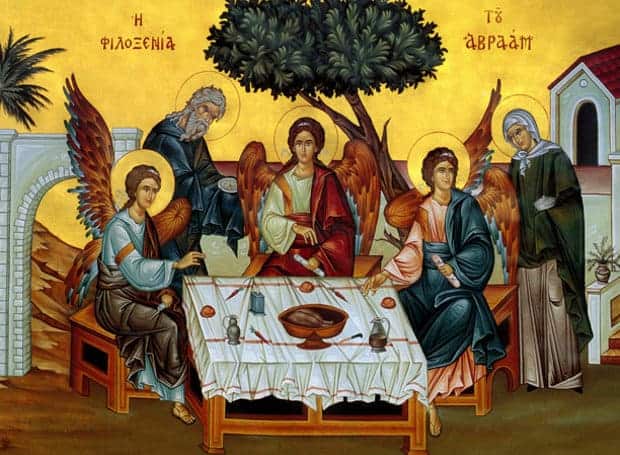
Today is Monday of the Holy Spirit, Agios Pnevmatos, and a national holiday in Greece, which is the day following Pentecost, fifty days after Greek Orthodox Easter.
In Greek Orthodox churches it is a three-day religious celebration, with lots of festivities, as it is a joyous occasion and also referred to by many as the second Pascha.
In the biblical story, 50-days after the Resurrection of Christ, the Holy Spirit descended on the apostles and the church of Jerusalem. It happened during the Jewish feast of Shavuot, a celebration of the giving of the Ten Commandments to Moses on Mount Sinai.
As the Apostles were amongst this crowd, the gospel stories relay that the Holy Spirit descended on them as tongues of fire, enabling them to preach to the assembled crowds, speaking to each person in a language he or she could understand.
The word Pentecost comes from the Greek word ‘pentekostos’ which means the fiftieth day. It is considered the birthday of the Christian church for two reasons. Firstly, the descent of the Holy Spirit completed the Trinity – the Father, the Son and the Holy Spirit – the basis of Christian theology. Secondly, it was the first time that the Apostles began to spread their faith to the masses.
Festivities for Pentecost begin on the Friday or Saturday before the day itself. The Sunday is also known as Trinity Sunday. Public celebrations, which tend to be local and church related – local fairs, for example, are held on the Saturday. The largest churches in cities, villages and islands hold services and the town centres have the biggest and most colourful festivals.
Today, the Monday following Pentecost, known as Agiou Pneumatos is also a national holiday in Greece and schools and companies are closed, but shops, restaurants, and cafes are open and normally packed with crowds.
